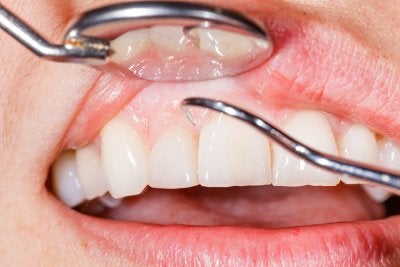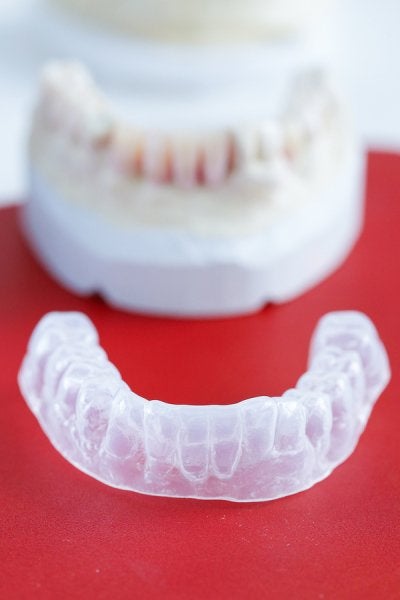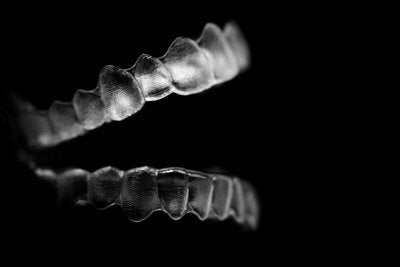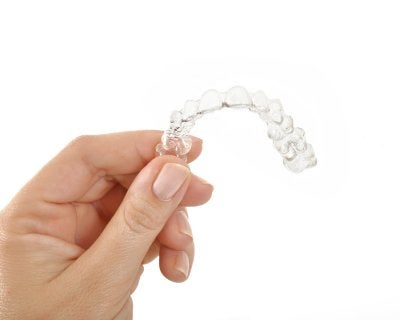-
Helping Your Kids Avoid Cavities
As a parent, it is important to teach your children proper oral health habits and hygiene. While cavities may be an unavoidable problem for some families, there are steps that you can take to help prevent a dental cavity in your child’s smile. A kid’s dentist in Bel Air will be able to gently clean your child’s teeth and check for the early signs of decay. Your pediatric dentist can also instruct your son or daughter on proper brushing and flossing techniques. To help you avoid the stress of a dental cavity, here is a look at some tips for helping your kids avoid tooth decay.

Brush and Floss Regularly
One of the most effective measures for preventing tooth decay is to encourage your children to brush and floss their teeth regularly. For optimum oral health, your child will need to brush and floss at least twice a day. Young children should be supervised throughout the brushing process. To help prevent cavities, you can also make sure that your kids use toothpaste that contains fluoride.
Eat Nutritious Food
Your child’s diet has a strong correlation with his or her oral health. Very sugary foods, such as candy or soft drinks, will cause harmful bacteria and plaque to build up in your child’s mouth. Over time, a sugar filled diet can cause cavities and other oral health issues. To ensure the proper oral health of your child, you will want to encourage him or her to eat a healthy diet that is filled with fruits, vegetables, and whole grains.
Schedule Dental Visits
Regular trips to the dentist will keep your child’s teeth in great condition. Children of all ages should visit the dentist at least once every six months. The twice yearly dental exam will allow your kids dentist to perform a thorough cleaning and check for any early signs of decay. During your regularly scheduled dentist appointments, your dentist can also make sure that your child is brushing and flossing correctly.
-
Talking to Your Dentist About Gum Disease Treatment
Gum disease, also known as periodontal disease, is one of the most common causes of tooth loss. Proper dental care can often prevent gum disease, but if you already have it, you may need specialized dental care in a dental office in Bel Air, MD. Undergoing an intensive dental cleaning may reverse the disease, provided you follow your dentist’s recommendations for at-home dental care .

Discuss Your Medical History
When you arrive at the dental office, you can expect to be asked about your medical history. You might consider asking your dentist how he or she thinks you developed gum disease. Some common risk factors of periodontal disease include diabetes, poor nutrition, poor oral care habits, tobacco use, and decreased immune function. Not all of these risk factors can be eliminated, but lifestyle changes can improve others. Consider asking your dentist to evaluate your typical brushing and flossing techniques, and give you some pointers if your routine could use improvement.
Learn About the Recommended Treatment
The treatment options your dentist recommends will depend on how far the disease has progressed. The early stage of gum disease is gingivitis. If you have gingivitis, your dentist might recommend one or two professional dental cleanings. You’ll also need a follow-up visit to make sure your gums are healing. If your dentist recommends this method, be sure to ask how often you should schedule routine dentist visits in the future. If your periodontal disease is more advanced, your dentist may recommend scaling and root planing. This is a deep cleaning method that scrapes away tartar, plaque, and toxins from below and above the gum line. The root surfaces are then smoothed. If your dentist recommends this option, consider asking how else you can support your oral health. Your dentist may prescribe medications, recommend medicated mouthwash, or advise you to switch to an electric toothbrush.
Ask About Maintenance
Whichever treatment option your dentist recommends, be sure to ask him or her about the maintenance phase. Maintaining your oral health is crucial to prevent a recurrence of gum disease. Your dentist may recommend that you return to routine dental cleanings four times per year instead of the usual two visits. During these visits, the dentist will check your gums to make sure they are still healthy.
-
Why Adults Are Choosing Invisalign
Braces have long been used to straighten the teeth of adolescents, but individuals of any age can benefit from having perfectly aligned teeth. Properly aligned teeth are essential for biting and chewing food, and for clearly pronouncing words. In some cases, braces might even improve oral wellness, such as when an adult suffers from temporomandibular joint (TMJ) disorder. For adults who live in Bel Air, a dentist is likely to recommend Invisalign.

Discreet Alternative
Dentists often recommend Invisalign to their adult patients because it offers a discreet alternative to highly visible metal braces. Although straight teeth are important at any age, the appearance of braces does not lend itself to a professional image. Adults who are concerned about how they look as they go about their day at the office may be more likely to choose Invisalign. Instead of metal brackets, Invisalign gently straightens the teeth with a series of custom-made aligners made of clear plastic . Since these aligners are virtually invisible, no one needs to know when a person is having his or her teeth straightened.
Convenient Aligners
Beyond appearance, Invisalign offers remarkable advantages over metal braces. The aligners are a convenient option because they are easily removable and replaceable. Dental patients simply pop out the aligners when it’s time for a meal. After eating and brushing their teeth, patients can easily snap the aligners back into place. The removable nature of the Invisalign aligners means that there are no dietary restrictions; patients can feel free to crunch on an apple, bite on celery, or chew sugarless gum.
Optimum Oral Health
Another benefit of the removable aligners is that they allow patients to maintain their normal oral health routines without having to fuss with proxabrushes or other special dental care equipment. The teeth can be brushed and flossed as usual. The aligners are easy to clean; a gentle scrub with toothpaste is all that’s needed to refresh them. Because adults can easily maintain their oral hygiene during treatment, there is no increased risk of tooth decay.
-
Aging and Oral Health
Good dental care is important at every age. As you grow older, your dentist might alert you to some problems that you may be at risk of. Aging can bring about changes in the dentin just underneath the enamel. This can cause your teeth to appear dull or darker. A quick trip to a dental clinic near Bel Air, MD , can easily correct this problem. Consider talking to your dentist about teeth whitening or porcelain veneers.
Watch this brief video for some helpful tips on taking good care of your teeth as you enjoy your golden years. This dentist recommends chewing sugarless gum to stimulate the release of saliva if you experience dry mouth due to certain medications. She also recommends making regular dental check-ups, brushing and flossing thoroughly every day, and limiting snacking between meals.
-
Conditions That Invisalign Can Treat
When you look at your smile in the mirror, do you notice that your teeth could use some improvements? If you have teeth that are misaligned, it could have a negative effect on your oral health as well as your aesthetic appearance. When you’re ready to correct your smile, talk to your dentist in Bel Air about your options for orthodontic treatment. Invisalign is a discreet alternative to traditional metal braces, as the smooth plastic aligners are practically invisible. Invisalign can help correct a number of different alignment issues. Read on to learn more.
Gapped Teeth
If you have sizeable spaces in between some or all of your teeth, Invisalign may be able to help treat this. Gaps can be caused by the way the jaw bone grows, or by missing teeth since remaining teeth will shift in their absence. Even if gapped teeth do not present an aesthetic concern for you, the extra space leaves your gums more vulnerable to periodontal disease. Normally, the gums are protected by the teeth, but with gaps, there is less of a barrier between the gums and disease-causing bacteria.
periodontal disease. Normally, the gums are protected by the teeth, but with gaps, there is less of a barrier between the gums and disease-causing bacteria. Overbite
Overbite, or overjet as it’s known to your dentist, refers to when the upper teeth protrude abnormally far in front of the lower teeth. It can be caused by genetics, bone development, or oral habits. An overbite can cause excess wear on the lower teeth as well as jaw problems that can be quite painful. Invisalign can often help correct an overbite.Open Bite
Open bite occurs when teeth don’t make contact when the jaw is completely closed. This may be a result of thumb-sucking, or genetics. If you have an open bite, you may experience problems speaking, or trouble chewing your food thoroughly. Since it can also lead to jaw disorders, Invisalign is a good choice to help correct this misalignment.Crowded Bite
If you do not have enough room in your jaw for all of your teeth, you may have crowded teeth. Your dentist may recommend extraction in order to make room for everything, or use Invisalign to help prevent your teeth from growing into a more crooked, misaligned position. -
What Is Orthodontics?
When you meet with your orthodontist in Bel Air , his or her primary concern will have to do with the way your teeth and facial muscles interact with each other. Orthodontics can be used in combination with cosmetic dentistry to achieve an attractive and efficiently functioning smile. Watch this video clip to find out more about orthodontics.
Just like your dentist, your orthodontist will conduct a mouth exam in order to take a detailed look at your teeth and gums. Depending on what he or she finds, a treatment plan may be devised. This mouth exam allows your orthodontist to find out if your teeth are growing in evenly as well as their proper placement. Braces, wires, and headgear are common orthodontic treatments that are used to correct misaligned teeth and yield proper bites. More and more adults are using braces and other orthodontic procedures due their newly discreet nature.
-
The Advantages of Invisalign
Are you ready to straighten your teeth and become confident with your smile? An orthodontist in Bel Air can help you say goodbye to your crooked smile and hello to beautiful teeth! Metal braces may be the traditional teeth-straightening option, but newer options can provide a much more comfortable experience. Invisalign offers a number of advantages over metal braces, such as:
Shorter Treatment Time
Getting a straight smile takes time, but some treatments take longer than others. Traditional metal braces take an average of two years to straighten teeth. Many patients complete their Invisalign treatments in six to twelve months! That is why Invisalign is such a popular option for teenagers and adults interested in straightening their teeth. You can start enjoying a straight smile faster if you choose Invisalign instead of metal braces.
Ability to Remove Aligners
When you have metal braces, you are stuck wearing them all day and all night until your treatment is complete. Your orthodontist will advise you against eating certain foods that can get stuck or damage your braces, such as sticky candies and popcorn. You will also have a hard time brushing and flossing your teeth, putting you at risk for developing plaque. Invisalign uses clear aligners that are easily removed for eating and cleaning. This means you can eat what you want and keep up with proper dental hygiene!Increased Comfort
Metal braces are highly effective at straightening teeth. Unfortunately, the brackets and wires used in these braces can be extremely uncomfortable. Poking and prodding may be normal for these braces, but you can avoid these concerns by choosing Invisalign. Your orthodontist can show you the clear plastic aligners used during treatment so you can understand how comfortable they are, especially compared to metal braces.Discreet Treatment
A crooked smile can take a toll on your confidence. Metal braces can do the same. Sporting a mouthful of metal can be especially embarrassing for adults you want to straighten their smiles. With Invisalign, you will be able to straighten your teeth discreetly and without the metal. Aligners are nearly invisible, allowing you to start feeling more confident with each new pair!
RECENT POSTS
categories
- Uncategorized
- General Dentistry
- Toothache
- Emergency Dentistry
- Family Dentistry
- Receding Gums
- Cosmetic Dentistry
- Veneers
- Gum Disease
- Gingivitis
- Dental Crowns
- Orthodontics
- Dental Implants
- Root Canal
- Wisdom Teeth
- Teeth Whitening
- Your Smile
- Composite Fillings
- Lumineers
- Dentures
- Invisalign
- BrightSmile
- Dental Bridge
- Abscessed Tooth
- Sealants
